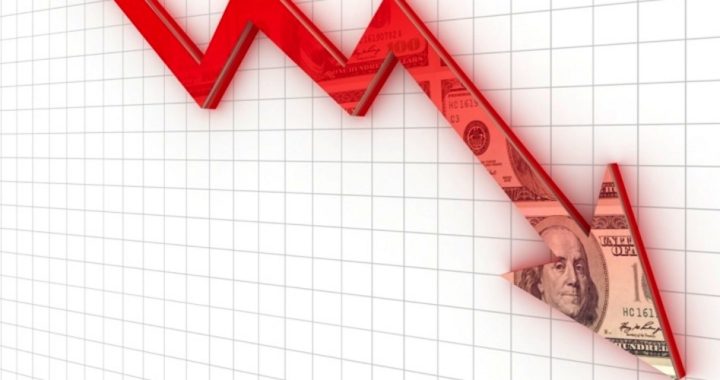
On Thursday the Treasury Department announced that the federal deficit for the 2015 fiscal year, which ended September 30, fell to an eight-year low — $439 billion — thanks to tax revenues that grew at a rate faster than government spending. Revenues, according to the department, grew by eight percent over last year while government spending grew by five percent.
Treasury Secretary Jacob Lew celebrated:
President Obama’s agenda continues to put federal finances on a sustainable footing while laying the foundation for durable economic growth and broadly shared prosperity.
Under the president’s leadership, the deficit has been cut by roughly three-quarters as a share of the economy since 2009 — the fastest sustained deficit reduction since just after World War II.
The Obama administration has done no such thing, of course. But Lew had to say something — anything — to keep citizens from getting nervous. For under the president’s leadership, deficits ran over $1 trillion each year for four straight years, increasing each household’s share of the national debt to nearly $60,000. On the day Obama was inaugurated, the federal debt was $10.6 trillion, of which $6.3 trillion was held by the public (the balance was intragovernmental debt). At the close of business on Tuesday, the total federal debt was $18.1 trillion, with $13 trillion of it held by the public. That’s an increase of more than 100 percent. But Lew failed to mention that.
Lew also failed to mention the attempts by the Congressional Budget Office (CBO) to show how temporary the deficit reduction is going to be. He didn’t tell how much capital is being drained away from the private sector just to keep the government afloat, capital that otherwise could and likely would be invested in expanding the economy. Lew failed to say that the Government Accounting Office told the truth about government debt: “Debt held by the public represents a claim on today’s taxpayers and absorbs resources from today’s economy.”
Lew didn’t say anything about how those deficits are likely to skyrocket in the future, either. Under favorable assumptions, the CBO projects that the public share of the national debt will jump from $13.4 trillion currently to more than $21 trillion in less than 10 years. Nor did he say that that number is likely to be much larger, as the CBO’s generous assumptions are unlikely to come true.
The CBO explained that the real problem is the Baby Boomer generation retiring and demanding their promised Social Security benefits. And that aging generation is requiring more and more from the nation’s healthcare system. Neither the CBO nor Lew mentioned what would happen if interest rates were to move higher than the two percent assumed as investors start to get nervous about the federal government’s ability to service their debt, and demand higher rates to offset the higher risk of default.
Nor did Lew say anything about the phony bookkeeping that keeps most of the government’s promises off its accounting ledgers — promises which, according to Boston University professor Laurence Kotlikoff, exceed the CBO’s number by a factor of 10, to more than $200 trillion.
The real problem with debt is that eventually it will be paid — the hard way through higher taxes, or an even harder way, through massive defaults and the breaking of promises made. The CBO added:
When interest rates [return] to more typical, higher levels, federal spending on interest payments would increase substantially. Moreover, because federal borrowing reduces national saving over time, the nation’s capital stock would ultimately be smaller, and productivity and total wages would be lower than they would be if the debt was smaller.
Default is in the cards, said the CBO:
At some point, investors would begin to doubt the government’s willingness or ability to meet its debt obligations, requiring it to pay much higher interest costs in order to continue to borrow.
And then, in a staggering understatement, the CBO added:
Such a fiscal crisis would present policymakers with extremely difficult choices and would probably have a substantial negative impact on the country.
It’s unlikely that those policymakers will do anything, until they have to. Right now there’s a lot on their plate: funding the government from October 1 through next September, resolving the debt ceiling by kicking that can down the road again, staying on top of the increasing number of criminal investigations presented by Planned Parenthood, Hillary Clinton’s e-mails, her Benghazi misjudgments that cost the lives of Americans, the increasingly dangerous developments in the Middle East, the furor over EPA regulations, the tumult over selecting the next the House speaker, and so on.
No, it’s much too soon for Lew or anyone else to celebrate victory over the national debt. Politicians will continue to do what they always seem to have done: bump along from one crisis to the next, hoping against hope that the big one — massive defaults and the breaking of promises made by them — can be put off at least until they are out of office and comfortably retired.
A graduate of an Ivy League school and a former investment advisor, Bob is a regular contributor to The New American magazine and blogs frequently at www.LightFromTheRight.com, primarily on economics and politics. He can be reached at [email protected].




